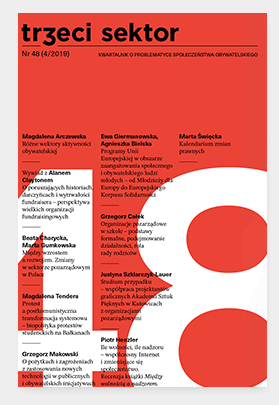Protest a postkomunistyczna transformacja systemowa – biopolityka protestów studenckich na Bałkanach
Abstrakt
Artykuł jest streszczeniem wyników badań terenowych prowadzonych w latach 2014–2017 w dwóch bałkańskich stolicach: Belgradzie i Sofii. Celem badań było pokazanie, że protesty studenckie, które przyspieszyły postsocjalistyczną transformację systemową w państwach centralnej i wschodniej Europy, na Bałkanach stanowią przykład mechanizmu bezpieczeństwa systemu społecznego zapewniającego określoną równowagę strukturalną w niestabilnych politycznie krajach i w ten sposób mają udział w reprodukcji układów rządzenia. Koncept bezpieczeństwa jest elementem teorii biopolitycznej Michela Foucaulta i pozwala – przez liczne odniesienia do kwestii przestrzennych i problematyki projektowania oraz zarządzania zjawiskami społecznymi – wpisać demonstracje studenckie w ramy mechanizmów biowładzy.
Protest and post-communist systemic transformation – biopolitics of the student protests in the Balkans
Abstract
The article presents a summary of the results of field research conducted over the years of 2014–2017 in the Balkan capitals of Belgrade and Sofia with a view to testing the thesis that the student protests catalysing post-socialist systemic transformation constitute examples of safety mechanisms of the social system which ensure a certain structural equilibrium in what are, from the purely political perspective, rather unstable countries. The concept of safety as understood here fits within the broader biopolitical theory of Michel Foucault and enables – by multiple references to spatial issues and to design and management of social phenomena – positioning of the student protests within the dynamics of biopower.
Pobierz cały artykuł w formacie .pdf




